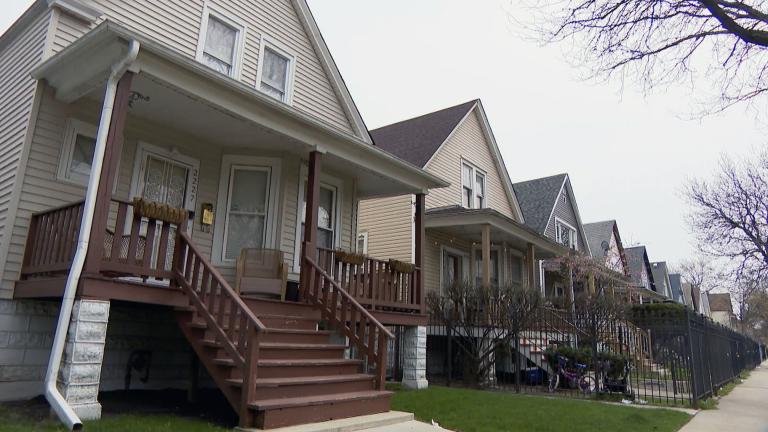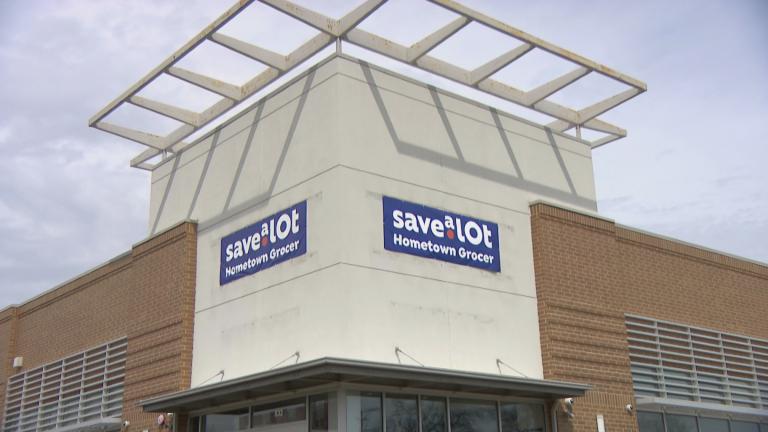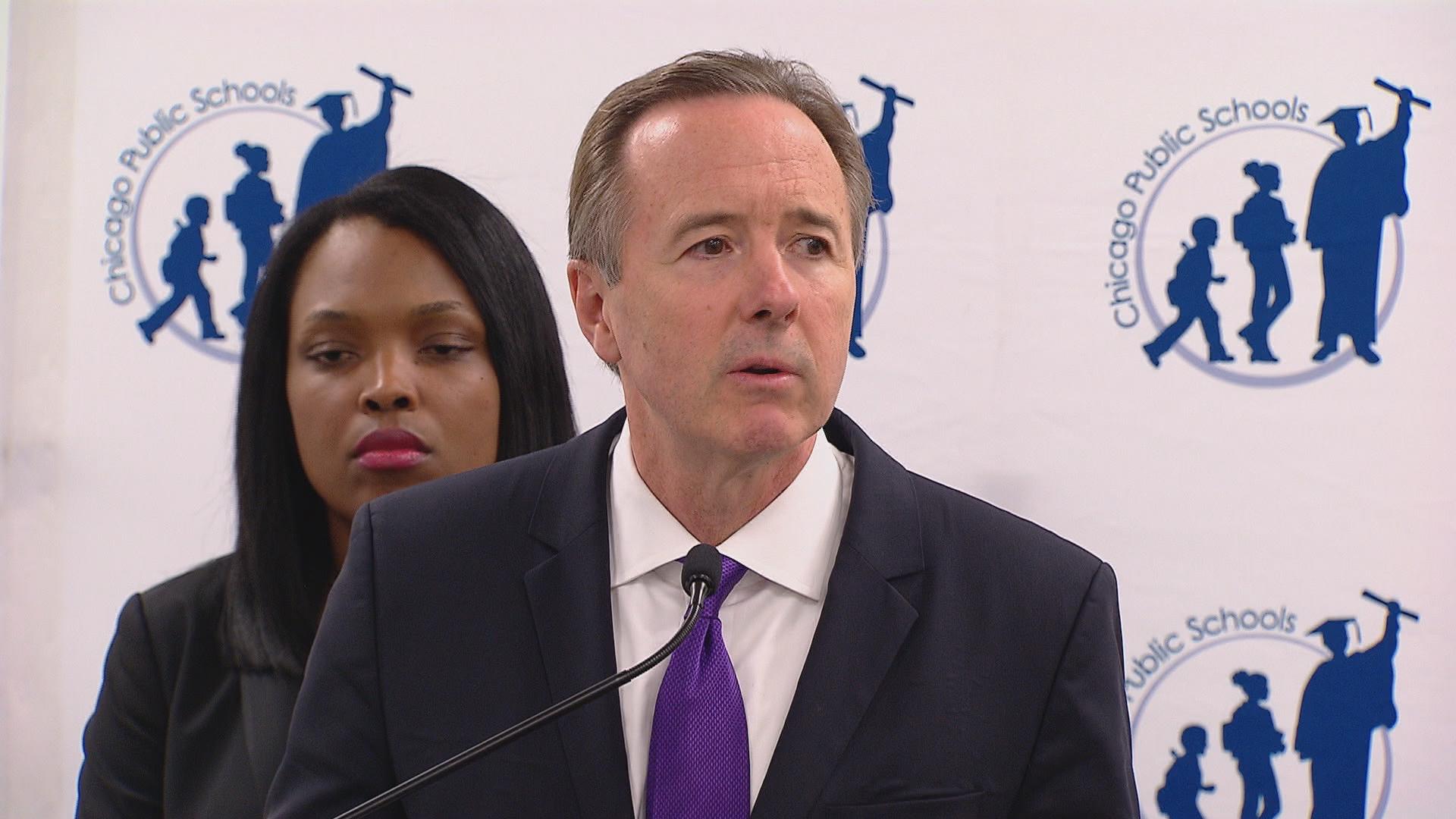 Chicago Public Schools CEO Forrest Claypool speaks on Aug. 8 about cash-strapped district's proposed 2017 budget. On Friday, Claypool attended a pair of public hearings on the proposal.
Chicago Public Schools CEO Forrest Claypool speaks on Aug. 8 about cash-strapped district's proposed 2017 budget. On Friday, Claypool attended a pair of public hearings on the proposal.
TIF money, transparency and special education funding were among the recurring themes at Chicago Public Schools’ public hearings this week on its 2017 budget.
Nearly two dozen speakers attended a pair of hearings Friday to voice their concerns, questioning the morality and legality of funding cuts and staff layoffs within the cash-strapped district.
A series of six CPS-lead public hearings on the district’s proposed $5.4 billion budget took place Wednesday through Friday this week, leading up to the Chicago Board of Education’s vote on the budget next week.
Among the changes in this year’s budget: Funds for general and special education classes are now commingled into a single allocation, which some teachers say puts those programs at odds with each other when it comes to resources, funding and scheduling.
“This creates a lose-lose situation for principals who have to meet the needs of students with special needs by taking resources from the larger gen ed population,” said Mary Hughes, who serves on the board of directors for Raise Your Hand Illinois, during the early session Friday morning.
CPS CEO Forrest Claypool responded to those claims, insisting principals are required to fund each of their individualized education programs (IEPs) before spending a dime elsewhere within their schools.
“That guarantees that every IEP is fully funded,” he said. “That was important to provide that guarantee. We also require that special education classes be scheduled first before general education classes are scheduled in order to ensure inclusion and mainstreaming and the least restrictive environment.”
Over the past few years, the district has maintained a $1.1 billion deficit. This past summer, state lawmakers and the governor passed legislation providing CPS with more than $600 million which, combined with district cuts, leaves CPS with a $300 million hole left to fill.
To help further trim that shortfall, parents, teachers and state lawmakers have called for additional tax-increment financing dollars to be diverted from the city of Chicago into the school district.
 Nearly two dozen teachers, parents and education activists testified during a pair of public hearings Friday on Chicago Public Schools' proposed 2017 budget. (Matt Masterson/Chicago Tonight)
Nearly two dozen teachers, parents and education activists testified during a pair of public hearings Friday on Chicago Public Schools' proposed 2017 budget. (Matt Masterson/Chicago Tonight)
Over the past decade, CPS has received more than $1 billion in TIF funds. The district’s TIF surplus is slated to drop off more than $54 million from FY16 to FY17, but according to the CPS budget book, that is due to a spike in TIF funding seen in FY15, which then spilled over into last year’s budget.
Throughout this week, Board of Education President Frank Clark reiterated the difficulty in obtaining any additional TIF dollars, pointing to the “competing interests” that are fighting for their share of funds available through the hundreds of TIF districts in the city.
“I wish that we had the ability to say ‘Stop everything else that’s been done in every community and every TIF district and funnel all that money to us,’” Clark said Thursday. “We push hard for every TIF dollar we can get and we’re never satisfied with what we get, but as important as the schools are to us and everybody in this audience – and I believe people in the city of Chicago – there really are other issues and other commitments and other economic developments that are necessary in the 50 wards and several hundred TIF districts around the city of Chicago.
“We don’t have carte blanche control over those dollars. Like I said, I wish we did, but in fact, we don’t. I don’t think they’re ill-used either.”
The district is still finalizing its TIF funding with the city, but expects to receive $32.5 million for FY17.
John Perryman, a music teacher entering his third year at the Andrew Jackson Language Academy, said his position was created through a TIF-funded program and he has “seen how it works" to help schools thrive.
“TIF money is supposed to go to development to our city,” he said. “There is not a better way to spend that money than (on) our children. They are a sleeping giant for development.”
But Clark and CPS Senior VP of Finance Ron DeNard argued TIF funding is not a long-term funding solution, with DeNard stating the district’s strategy to fill its $300 million gap is “absolutely locked down.” In a presentation Friday, he said CPS will reduce that deficit through vacancy savings, increasing Medicaid reimbursements and grants, and labor savings.
Earlier this month, the district laid off more than 500 educators, though it still has hundreds more vacancies left to fill. Some of the speakers Friday believed those cuts to be illegal, claiming they unduly discriminated against minority teachers.
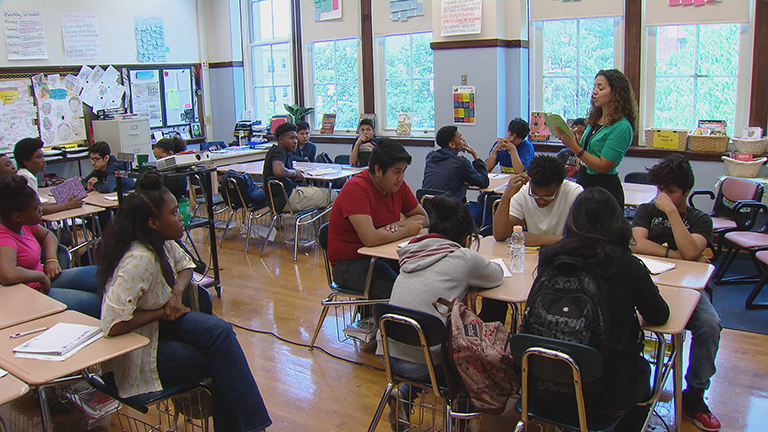 Read: CPS to Cut More Than 1,000 Teaching, Support Staff Positions
Read: CPS to Cut More Than 1,000 Teaching, Support Staff Positions
Under an increased property tax levy included in the proposed budget, the average Chicago homeowner will see a $245 increase – amounting to about 68 cents per day – on their tax bill next year.
The school district held a sparsely attended public hearing Thursday morning to discuss a proposed 14.3-percent increase in corporate and special purpose property taxes, which will bring that tax levy up to more than $2.7 billion for the upcoming fiscal year.
That $245 bump – estimated for the owner of an average Chicago home with a market value of $250,000 – contains increases brought on by: the reinstatement of teacher pension tax ($228), inflation/CPI ($14) and the capital improvement tax ($2).
CPS has raised the level of property taxes included in its budget in 25 of the past 26 years, with the majority of this year’s increase going toward the district’s pension payments as it continues negotiating a new contract with the Chicago Teachers Union.
CTU President Karen Lewis told Chicago Tonight this week contract talks between the union and the district have been stuck on CPS’ desire to end its pension pickup.
 Read: CTU Prepping Teachers for ‘Strong Possibility’ of Strike
Read: CTU Prepping Teachers for ‘Strong Possibility’ of Strike
For the past three decades, the district has paid 7 percent of the 9 percent employee contribution to the teacher pension system. But a contract offered in January by CPS that CTU nearly agreed to would have phased that out over two years.
CPS estimates that contribution will continue growing for the next several decades, surpassing $1.5 billion in 2059, which it says highlights the need for a long-term pension parity solution between it and other districts within the state.
CPS – the only district in Illinois required to fully fund its pension system – did receive $215 million in state aid for FY17. But its contribution to the Chicago Teachers Pension Fund (CTPF) will increase in the coming year by $45 million, up to a total of $721 million, according to the CPS budget book.
Lewis now says the union will not accept any contract that reduces teachers’ salaries, going so far as threatening to strike if that pension pickup is removed.
The Board of Education is expected to vote on the proposed budget at its meeting Wednesday morning.
Follow Matt Masterson on Twitter: @ByMattMasterson
Related stories:
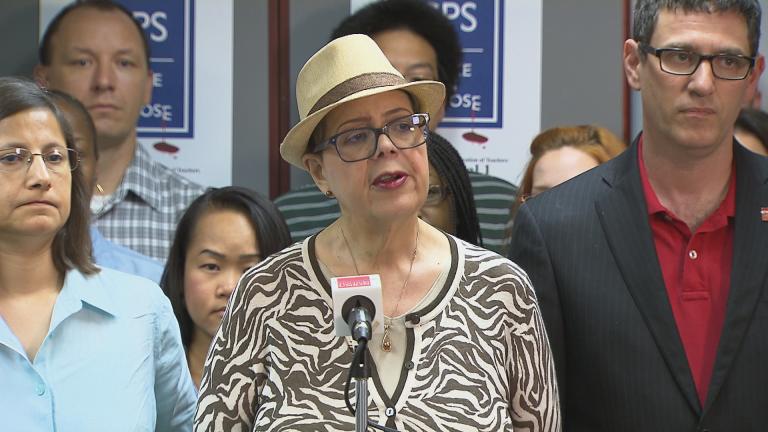 CPS Releases Budget for Coming School Year, Counts on CTU Contract
CPS Releases Budget for Coming School Year, Counts on CTU Contract
August 8: Now that Chicago Public Schools has released its budget plans for the coming year, can the district and the Chicago Teachers Union finally nail down a contract agreement?
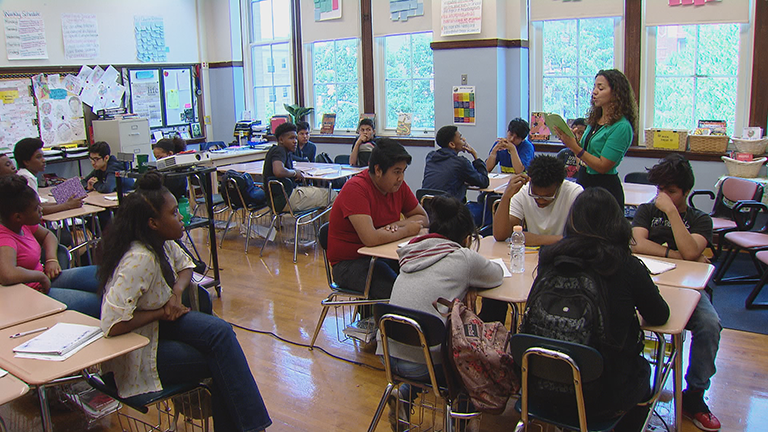 CPS to Cut More Than 1,000 Teaching, Support Staff Positions
CPS to Cut More Than 1,000 Teaching, Support Staff Positions
August 5: Declining enrollment and vacancies at other schools cited as Chicago Public Schools announces layoffs for hundreds of educators.
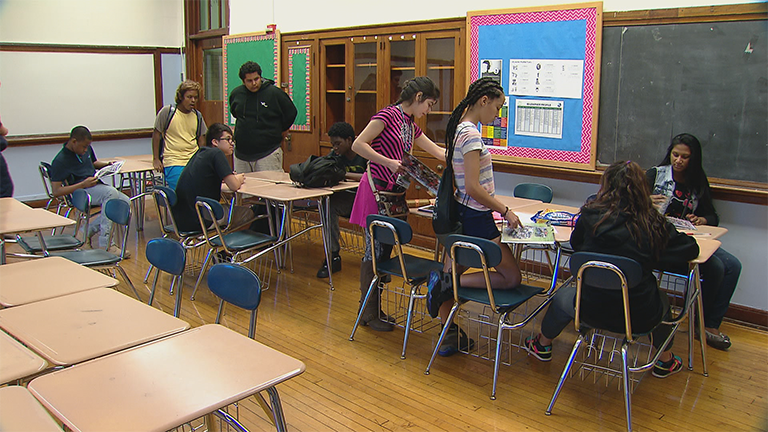 CPS Principals Finally Get Draft Budgets for School Year
CPS Principals Finally Get Draft Budgets for School Year
July 13: Though the school year has been rife with fiscal crisis, Chicago Public Schools’ principals now know that the cuts to their school budgets will not be as deep as threatened in recent months.


